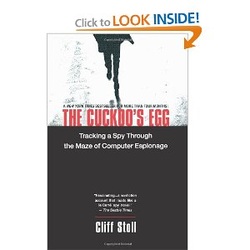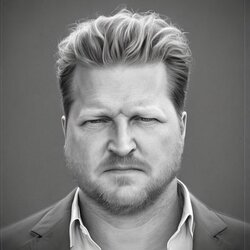 Good advice from CommPro blog on tuning up your career management skills for 2012. Many of us have heard these things before. It's a good reminder to review. The difference is putting these items in action and pushing for results in these domains. I made my own list building off theirs 1. Take responsibility. - Don't blame the previous assignee, other teams, or factors. Just get it done. 2. Have a career strategy. - technical vs management, long-term vs short-term 3. Your goals vs. company’s goals. - are they complimentary? the harmonious place will be where both benefit from the results of shared or compatible goals 4. Know your customer. - In-house, horizontal, cross-business functional, etc. Understand their demands, industry constraints, competition. For example, if your customer is the FedGov, it's focused on Affordability 5. Publish. - Gold-star journal is the goal, but there are other mediums that can help with career progression. An endorsement, a write-up for a volunteer activity, department newsletter, speak on a topic. 6. Be a team-player. - Yes, it's still relevant; probably now more than ever given a smaller workforce and the inability for a maverick approach to "go it alone." 7. Be multi-functional. - The "analyst" role seems to be expanding as organizations "do more with less staff." For techies, learn the business-side of the house in a Technical Program Manager role; for business leaders, consider building up new skills such as cloud computing, columnar/in-memory databases. 8. Volunteer to develop your skills. - Participate in student development competitions, exchange study program materials with co-workers, seek out grants, and scholarship funding. Teach. 9. Mentor. - Another buzzword. Consider mentoring with colleagues at the peer level. Set up monthly exchanges with a trusted group of peers and help each other. 10. Network, network, network. - Dale Carnegie. 'nuff said
0 Comments
 The UMUC Library has a post about the best books of 2011. The post is from last December, but I doubt we've read them all. Looks like some great titles. My favorite book of 2011 is David Levy's Gray Matter. It's a combination of light, quick reading balanced with drama and insightful observations that let the reader reflect on the author's message hours and days after reading. The lists UMUC compiled include: The Guardian also has Nielson's Best Books of 2011  _All of us have read the "oddball interview question" articles. They are aplenty on the web, get lots of hits when posted, and they are getting quite tiresome (hasn't everyone read them by now?). In contrast, ACM has a great article written by Jayne Mattson on what HR recruiters are looking to answer. She says they are trying to determine the following:
Credit: Massachusetts Employment Law Attorneys To answer those, a series of questions will be asked of the candidate/job seeker. Mattson shares information on the "question behind the question" that recruiter is asking in a job interview. Below are the interview questions, Mattson's reflection on each question is available at the ACM link (goes to Mashable).
 _Yuchung Cheng from Google's Make The Web Faster Team has a new post on how to improve the "workhorse of the Internet", the TCP protocol. Cheng's ideas focus on reducing latency by reducing the number of round trips a packet takes. Latency is defined as delays in the network. ISPs using bufferbloat, described by Jim Gettys as the condition " whereby excess buffering of packets inside the network causes high latency and jitter." Basically, network devices are making incorrect decisions on whether to keep or discard packets. Given that memory is relatively cheap, these devices are storing large amounts of data in the buffer. Under load, the network may take longer to process the request as the the buffer must clear to service the new request. In networks with bufferbloat present, the full benefit of Cheng's proposed improvments may not be realized. Interesting comments on Cheng's blog.  _I first read Clifford Stoll's book in the early 90's and was fascinated by his gripping tale of chasing an intruder through global military networks. If you are interested in cybersecurity, ethical hacking, computers, or just enjoy a great tale of espionage, this is a great book! From Amazon's description: "Cliff Stoll was an astronomer turned systems manager at Lawrence Berkeley Lab when a 75-cent accounting error alerted him to the presence of an unauthorized user on his system. The hacker's code name was "Hunter" -- a mystery invader hiding inside a twisting electronic labyrinth, breaking into U.S. computer systems and stealing sensitive military and security information. Stoll began a one-man hunt of his own, spying on the spy -- and plunged into an incredible international probe that finally gained the attention of top U.S. counterintelligence agents. The Cuckoo's Egg is his wild and suspenseful true story -- a year of deception, broken codes, satellites, missile bases, and the ultimate sting operation -- and how one ingenious American trapped a spy ring paid in cash and cocaine, and reporting to the KGB." http://www.amazon.com/Cuckoos-Egg-Tracking-Computer-Espionage/dp/0743411463  What kind of skills will you need to be competitive in the cloud computing environment? CIO has an article about what changes may occur and the skills required to be a technically effective in the cloud computing domain. I summarized the key points below:
The gaping hole they overlooked is the "applications administrator" type role. This the squishy layer between infrastructure maintained by traditional systems administrators, but not really managed by programmers and developers. The role has emerged as applications administrator or middleware applications support. The boundaries vary depending on the IT shop, skillset, management preferences, etc, but the role exists. Looking forward to the cloud this role will likely expand. The ability to understand the complexities of interfaces, platforms, transactions, and data design within cloud systems will be a valuable skill to have. Another omission from the article is security skills for the cloud. Study after study details the caution of moving to the cloud due to security concerns. Understanding penetration, vulnerabilities, and appropriate defenses is critical to designing and maintain cloud systems. Finally, the cloud may be one of the more accessible technologies to learn. The characteristics of accessibility and elasticity of the cloud lend themselves to training as well. As mentioned in the article, a great way to learn about the cloud is find a cloud provider (AMZ, Rackspace, Eucalyptus, etc) and fire up some cloud systems. Practice scripting, management, turning, and support on these systems at a relatively low cost (free in some cases). Scott Jaschnik from InsideHigherEd writes about a recent study by Jeffrey A. Groen of the U.S. Bureau of Labor Statistics
and Cornell University which found found "that that the impact on time to degree in the humanities and social sciences is seen three to six years after the job market changes in various academic disciplines." After years of coursework, training, and preparation, the doctoral student sits for prelims (or comps) and upon passing enters candidacy. At this point, a good portion of the research study is self-directed and the candidate is left to manage the project, meet deadlines, and deal with impacts to the research. All the while, maintaining a semblance of work-life-school balance. As the dissertation defense looms closer, candidates will be looking ahead to completion of the program, graduation, and the job market. This prompts the question, is the independent nature of candidacy leading to doctoral candidates slowing their progress due to weak a job outlook? Groen explains, “the results indicate that although current job listings are not associated with the probability of completion, job listings in prior years are associated with the probability of completion…. [T]he presence of an association with listings in prior years suggests than an effect operates through choices made by students earlier in their graduate programs, such as the dissertation topic and the research plan for the dissertation.” Read more: http://www.insidehighered.com/news/2012/01/23/study-finds-link-between-job-market-and-duration-phd-programs#ixzz1kNwh3WOb  In USA Today, St. Joseph's College senior Ashley Santucci shares five things in college not to be taken for granted. 1. Campus Events 2. Textbooks 3. Professors (yes!) 4. Career Centers 5. Walking around campus I would add to Ashley's list, "6. Leadership Opportunities" such as student government, clubs, and organizations. These allow students to become familar with volunteering, participating in committees, learning Robert's Rules of Order, etc. _ I encourage all students to take advantage of the opportunities within the college or university. Access to vast amounts of resources, libraries, and scholarly professors can be one of the most rewarding experiences. _ TOGAF® 9.1 – Now Available in Architecting the Enterprise Course Material Architecting the Enterprise is pleased to announce that from the 3rd of January 2012 all our training will be delivered using TOGAF® version 9.1 which was released by the Open Group on December 1st, 2011.
Here are a few quick facts about the changes:
|
AuthorDirector Archives
January 2023
Categories
All
|
Photos from europeanspaceagency, ▓▒░ TORLEY ░▒▓, Lori_NY, Dean_Groom, dalecruse, Fin Cosplay & Amigurumi, Iain Farrell, erin_everlasting, palindrome6996, Easa Shamih (eEko) | P.h.o.t.o.g.r.a.p.h.y, markhillary, Matt McGee, Marc_Smith, woodleywonderworks, agustilopez, rachel_titiriga, SeaDave, cheri lucas., Caio H. Nunes, grabbingsand, Armchair Aviator, quinn.anya, Jennifer Kumar, billaday, edtechworkshop, chucknado, purpleslog, yugenro, christianeager, dground, GlasgowAmateur, expertinfantry, shixart1985 (CC BY 2.0), OiMax, Wilfried Martens Centre for European Studies, PEO, Assembled Chemical Weapons Alternatives, IBM Research, shixart1985, markus119, shixart1985, shixart1985, Wilfried Martens Centre for European Studies



 RSS Feed
RSS Feed
